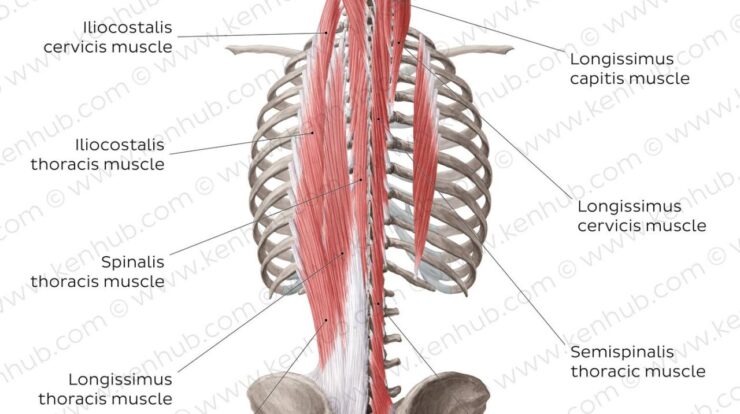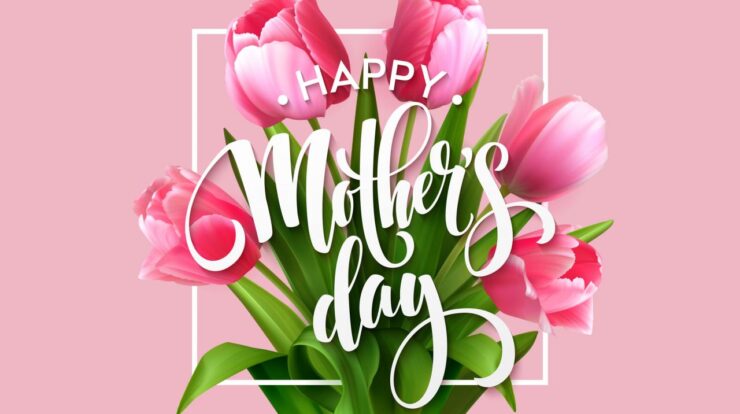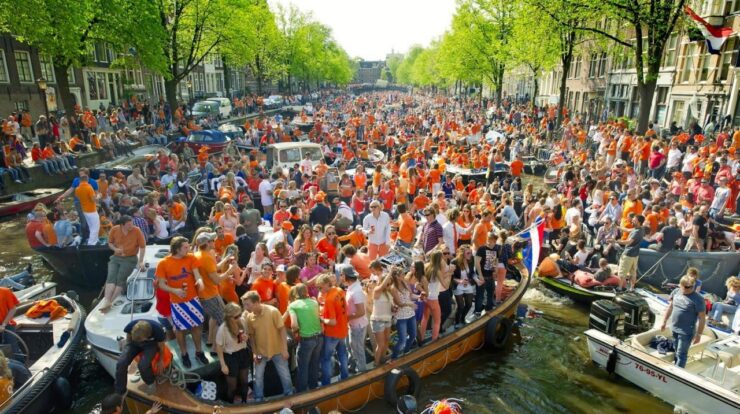
As Kings Day takes center stage, the Netherlands erupts in a vibrant display of orange-hued festivities, honoring the nation’s monarch and celebrating Dutch culture.
With roots steeped in history, Kings Day has evolved into a beloved tradition that weaves together the threads of Dutch heritage, national identity, and communal spirit.
Historical Origins: Kings Day
Kings Day, celebrated annually on April 27th, has a rich history rooted in the Dutch monarchy. The holiday commemorates the birthday of King Willem-Alexander, the current reigning monarch of the Netherlands. The tradition dates back to 1885, when it was first observed as Queen’s Day to honor Queen Wilhelmina.
Significance of the Monarchy
The Dutch monarchy holds a significant role in the celebration of Kings Day. The monarchy represents the unity and continuity of the nation, and the holiday provides an opportunity for citizens to express their support and affection for the royal family.
Cultural Significance
Kings Day is deeply ingrained in Dutch culture and heritage. It is a day of national pride and celebration, bringing people together from all walks of life. The holiday reflects Dutch values of community, festivity, and the embrace of the nation’s rich history.
Role in Dutch Identity
Kings Day plays a crucial role in shaping Dutch national identity. It is a day when Dutch people come together to celebrate their shared heritage, traditions, and values. The holiday fosters a sense of unity and belonging, reinforcing the bonds that unite the nation.
Festivities and Celebrations
Kings Day is marked by a wide range of festivities and celebrations across the Netherlands. The streets are adorned with orange decorations, the official color of the holiday, symbolizing the royal family and the House of Orange.
Flea Markets and Outdoor Gatherings
Flea markets are a prominent feature of Kings Day, with vendors setting up stalls in streets and public spaces. These markets offer a lively and vibrant atmosphere, where people can browse for unique finds and bargains.
Regional Variations
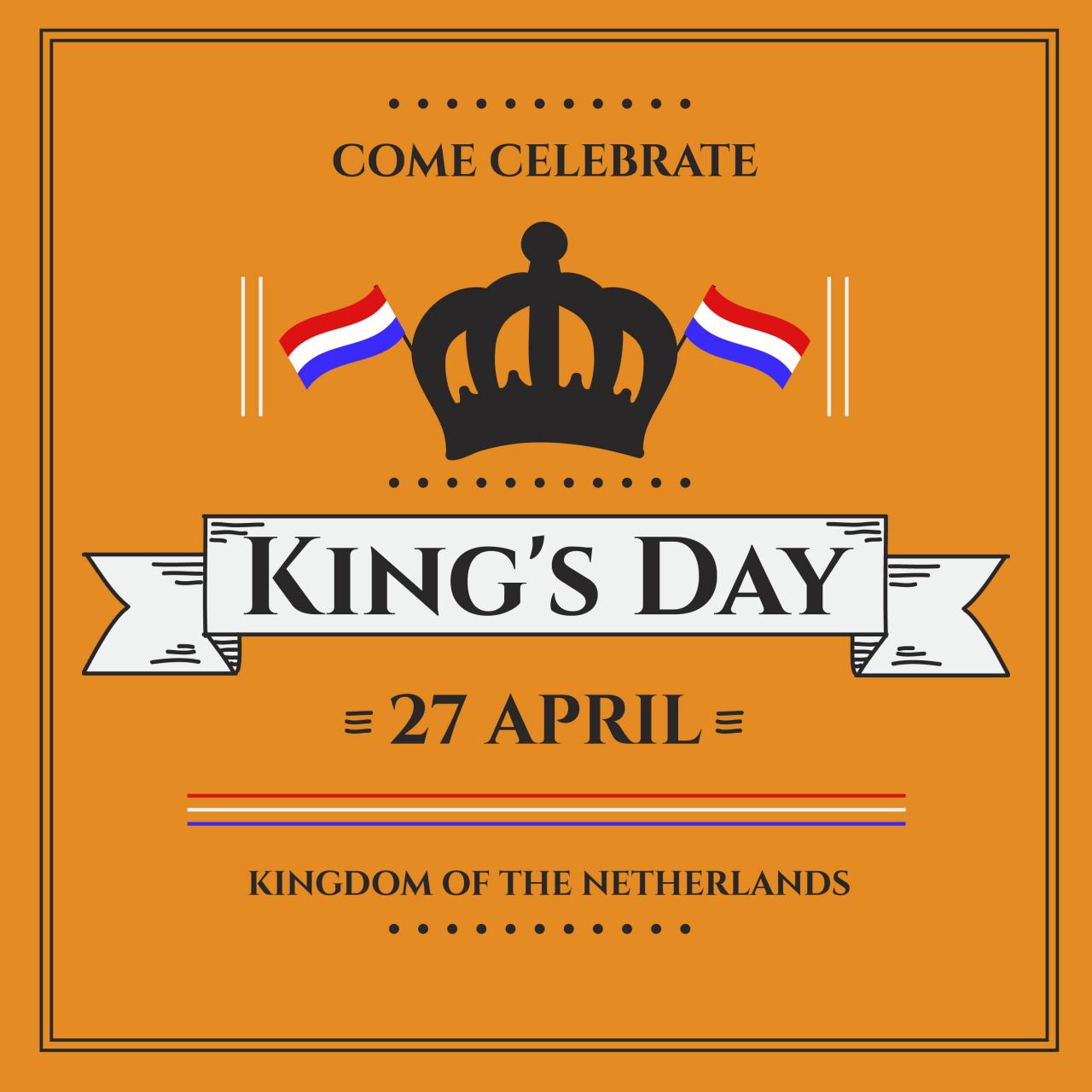
Kings Day is celebrated with unique variations and traditions in different regions of the Netherlands.
Northern Netherlands
- In the northern provinces, such as Friesland and Groningen, Kings Day is known as “Koningsdag.” Traditional games, like “Fierljeppen” (pole vaulting over a canal), are popular.
Southern Netherlands
- In the southern provinces, such as Brabant and Limburg, the holiday is called “Koningsnacht” (Kings Night), with festivities extending into the night before.
Economic Impact
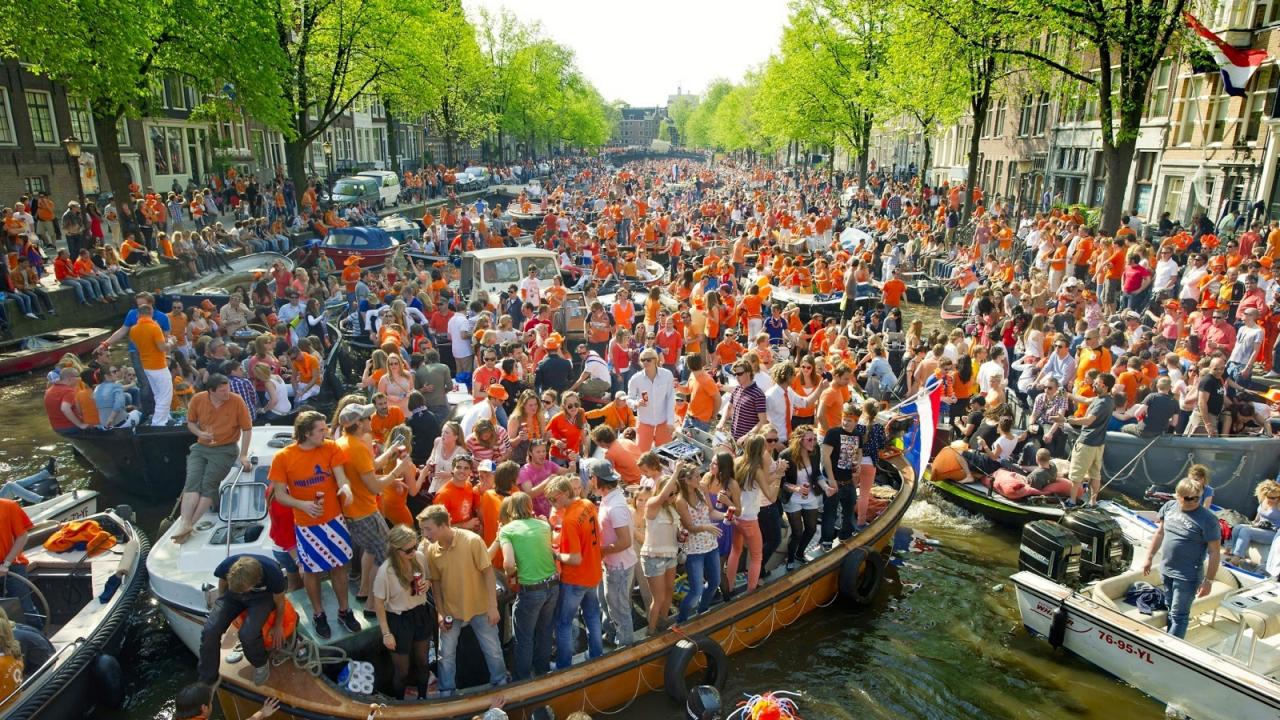
Kings Day has a significant economic impact on the Netherlands, particularly in the tourism and retail sectors.
Revenue Generation, Kings day
The influx of tourists and the increased consumer spending during the holiday generate substantial revenue for businesses and the national economy.
Social and Environmental Impact
Kings Day fosters a sense of community spirit and social cohesion.
Environmental Impact
While the festivities contribute to waste generation, efforts are made to minimize the environmental impact. Initiatives include recycling programs and waste reduction measures.
Outcome Summary
From the bustling flea markets to the lively street parties, Kings Day encapsulates the essence of Dutch culture, fostering a sense of unity and pride that reverberates throughout the nation.
FAQ Resource
When is Kings Day celebrated?
Kings Day is celebrated annually on April 27th.
What is the significance of the color orange?
Orange is the official color of the Dutch royal family, and it is widely displayed during Kings Day celebrations.
What are some popular activities during Kings Day?
Festivities include flea markets, street parties, music performances, and special events.
